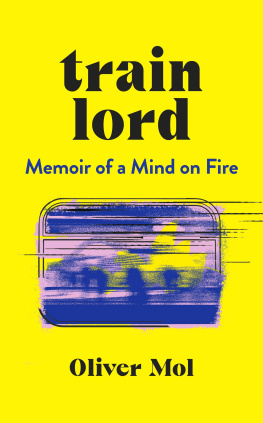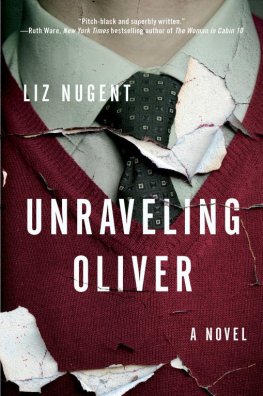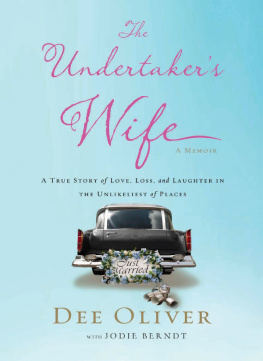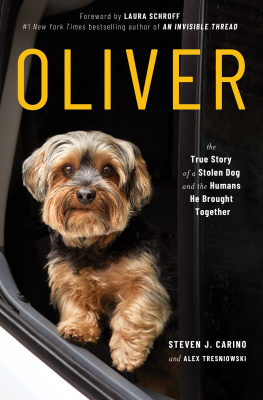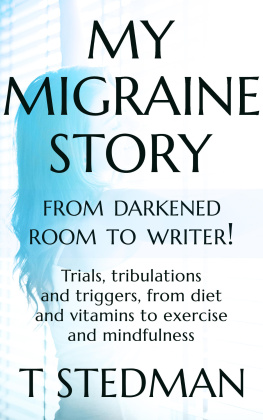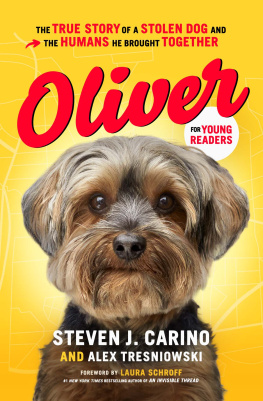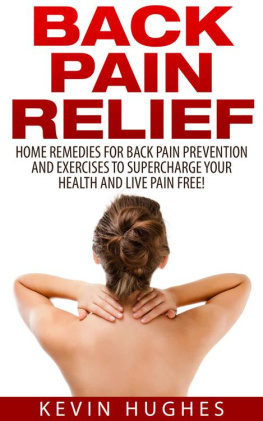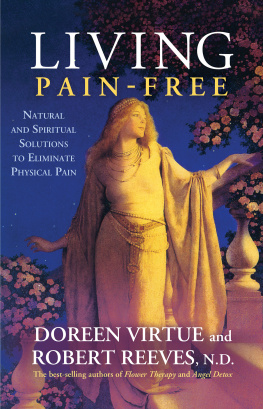Oliver Mol
TRAIN LORD

PENGUIN BOOKS
UK | USA | Canada | Ireland | Australia
New Zealand | India | South Africa
Penguin Books is part of the Penguin Random House group of companies whose addresses can be found at global.penguinrandomhouse.com.

First published by Michael Joseph in 2022
Copyright Oliver Mol, 2022
The moral right of the author has been asserted
Cover design and illustration by Anna Morrison
Author photograph Holly Gibson
ISBN: 978-0-241-52509-8
This ebook is copyright material and must not be copied, reproduced, transferred, distributed, leased, licensed or publicly performed or used in any way except as specifically permitted in writing by the publishers, as allowed under the terms and conditions under which it was purchased or as strictly permitted by applicable copyright law. Any unauthorized distribution or use of this text may be a direct infringement of the authors and publishers rights and those responsible may be liable in law accordingly.
For Holly, for everything
To discuss oneself is to invite disaster. Never give an interview. Never, under any conditions, write the story of your life. And, it would be better not to write poetry either. Even fiction can incriminate you. The safest procedure, it goes without saying, is to write nothing at all.
Paul Bowles, An Exemplary Essay

Train Lord
The first day of train school our teacher asked us what we would do if we were on the train and we had to go to the toilet, and wed already had our break. For a while, no one spoke. Then Susie said, Shit in a bag, sir. Yeah. Probably shit in a bag. Good on ya, Suze, our teacher said. The shit in a bag approach. A classic. Then we went around the room and said our names and where wed come from and a fun fact about us too. Ed said hed worked in logistics and sailed around the world with the Navy in his youth, and Zayd had been a transit cop with a baby on the way. But now it was my turn and I didnt know what to say. I didnt want to talk about the migraine or how Id failed as a writer. I didnt want to talk about pain. So I said my name was Oliver and flipped my wrist frypan-style. I winked and said that I loved to cook.
***
Five months of train school? What the hell did you learn? Sam asked. We learned about the railway, the different trains, the S sets and K sets and C sets and T sets and M sets and H sets and A sets and B sets. We learned how to communicate with bell signals and where to locate the fire extinguishers and how to administer first aid. We learned the Sydney Trains Network, every station in order, and what platforms, if any, a train could terminate on. We learned how to take a train apart and put it back together, and how to drive the train in case the driver became incapacitated. We learned how to prepare and how to terminate a train, how to test for faults, and how to talk, phonetically, on the radio, as if we were in the army, like my dad taught me long ago. We learned how to evacuate trains, safely, methodically, and we learned to follow rules. We learned the correct procedures for opening windows and climbing ladders and wearing backpacks and the correct paths to walk from the station to the train yard. We learned which signals were permissive and which were absolute and which would remain red, fixed, no matter what. We learned to slow down, to not think, or to think only about what we had learned; we learned how to stop.
And I remembered how to breathe.
We were shown how to wake drunken people passed out on the train and we were given the number for security and told about the guards who had been assaulted late at night. We were told to watch out for spitters and we were told of the frequent suicides and we were told to watch out for fights. We were told about the snakes, especially at Leppington, and we were told that none of this was a joke. We were told about the drugs tests and the alcohol tests, and we watched videos, filmed in the 90s, about the trains that had derailed and the people who had died because someone, somewhere, had failed to follow the rules.
We learned to make announcements, to stay calm; we learned to be rocks. We learned that in life and work the waves would come and the waves would crash and people would yell and call us names, but we wouldnt care because we were stable and dependable and when the waves were gone we were still there because we were rock people now. We learned all this and five months later we passed exams and were given shirts and pants and hats and whistles and belts and vests and flags and backpacks and shoes and belts and keys. We worked a 24-hour roster, seven days a week, 365 days a year. We were given train diagrams that told us where to stop and when to have lunch and when and where our shifts would end. And there was something beautiful about changing, about not writing, or not thinking, or thinking very little, about wearing a uniform and being told what to do.
Congratulations, our teacher said on the last day of school. Youve all won the lottery. Ive been with the railway for forty-seven years, and Ive never worked a day in my life.
***
On my first shift, there was a suicide. I went to Hornsby to relieve the guard; his train had cut someone in half. Fucking useless pricks always offing themselves around Christmas, he said. Want my advice? Dont look at the body. So I sat on the train while emergency services cleaned up the blood and the limbs and the mess, and when the body wheeled past I tried to look away, but I couldnt. I had to see the body wrapped in a white sheet on a stretcher, and I had to see the way their legs poked one way and their arms poked another. I had to see the sun and I had to see the sky, the blood drying beneath it, and I had to imagine his parents or friends or siblings when they got the call. I had to know what that moment looked like, that this wasnt just an idea, that this was final, that this was real. After I took the train to the sheds, I burst into tears.
When I was a writer, or unemployed, living at Tobys house, in his bed, he sat me down and said: Oliver. You need to get your shit together. Get a job. This is no way to live your life. And so we spent the following hours drinking Tobys rum and snorting Tobys cocaine, looking at all the ways it might be possible for me to grow up. We looked at advertising jobs and public relations jobs and copywriting jobs. The following day I updated my LinkedIn. I wrote cover letters, emails. Once, absurdly, I even arrived unannounced at the door of a creative agency, my rsum in a manila folder. I was twenty-five, then, and on the rare occasion I received an interview, I would make the mistake of telling the truth. I would say that I did not have a business degree or a communications degree but that I did have one of the most useless degrees of all: a creative writing degree. I would say that I did not have any formal copywriting or advertising or marketing experience, but explain that the rights to my first book had been sold, and that Id been published over fifty times in Australia and overseas, and that Id built a following for myself online (now, largely defunct). Then I would smile and leave, realizing what Id suspected all along: that no one gave a shit how many pieces of fiction or non-fiction you had published, that, in the end, the best-case scenario for Australian letters was a life of obscurity and critique, and perhaps a book or two, a couple of writers festivals, but rarely, or in my case never, a living or a job.

